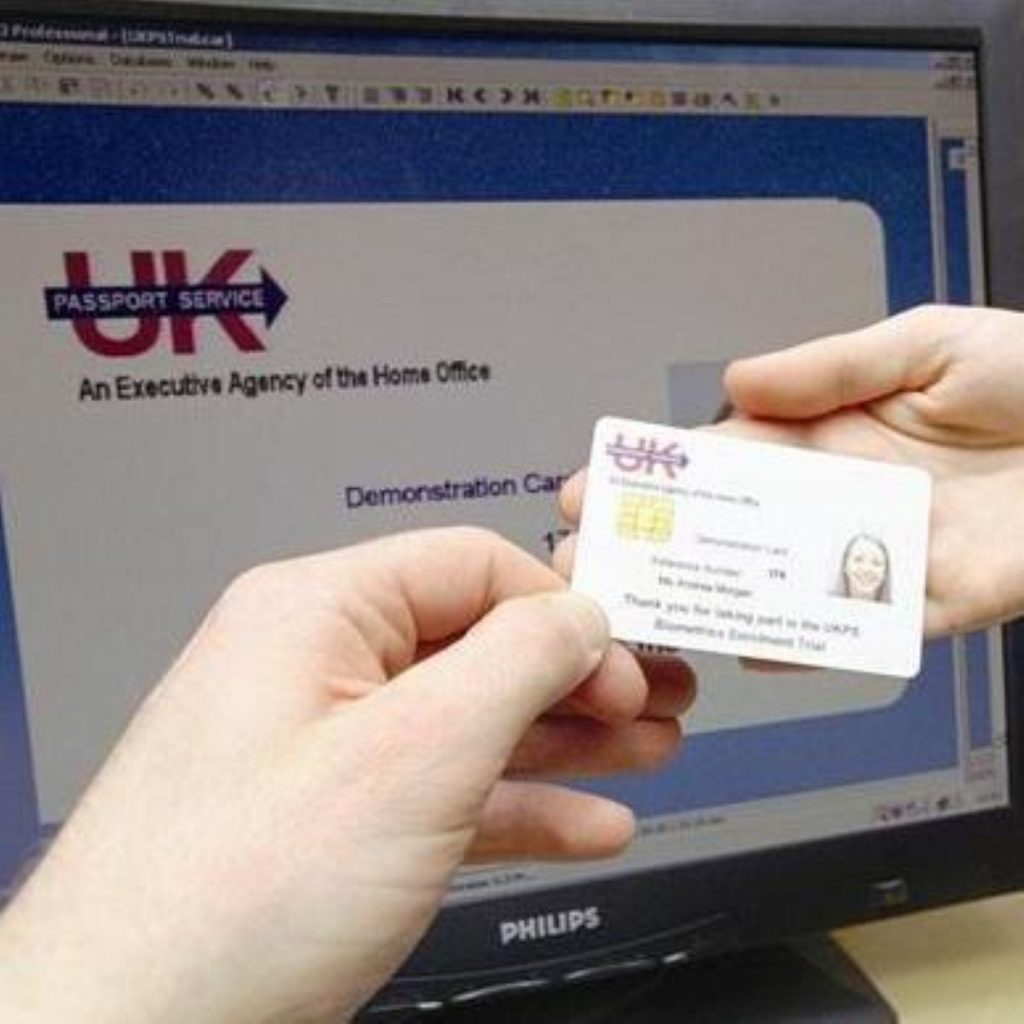ID cards ‘a step closer’
By Jonathan Moore
Plans to introduce ID cards came a step closer today after the government announced it had awarded contracts for the technologies required to process applications and store the data.
The Identity and Passport Service (IPS) will replace and upgrade its current systems for both enhanced passports and the controversial ID card scheme in deals worth £650 million.
The contracts form part of the wider system which uses facial and fingerprint recognition technology and will cost the taxpayer more than £4.8billion over the next ten years.


“These contracts bring ID cards and more secure British passports a step closer,” said home secretary Jacqui Smith.
“These improvements will further help protect our borders.”
Foreign nationals are already being issued with ID cards and airside staff at Manchester and London City airports will be issued with cards from the autumn as part of an 18 month evaluation period.
However, as reported by politics.co.uk despite continued investment in the technology required to process and store the information, UK security forces still lack the capability to read data stored on cards.
National co-ordinator of NO2ID Phil Booth said this was further proof of the “billion pound bonanza” for companies involved in the ID cards scheme.
He described the move as a “blatant piece of Home Office empire building”, adding that in the current financial situation such excessive public spending “flies in the face of both common sense and political reality”.
“Issuing complicated mega-contracts in an attempt to tie future governments to their ID ambitions is a bit of a last gasp effort,” he said.
“Both the Conservatives and the Lib Dems have pledged to scrap the scheme, and the excuse that ‘this would all need to be done anyway’ has worn so thin you can see holes right through it.”
James Hall, IPS chief executive, said: “The British passport is already one of the most secure in the world and it is vital we maintain that strength by moving with the rest of the international community.
“That is why as we replace expiring contracts we are introducing fingerprint and facial biometric technology to the passport.
“At the same time we are upgrading our application process to improve the service our customers receive. Both contracts will also help deliver the ID cards programme.”
The contract to upgrade the IPS’s application and enrolment system was awarded to CSC while the technology required to store the information will be provided by IBM.
CSC won the contract from a group of 50 prospective bidders back in September 2007 which were reduced to a shortlist of five before hundreds of face-to-face meetings to determine the final choice.
Mr Hall said: “IBM and CSC have shown they are superbly placed to deliver these large projects and we are delighted they are working with us.”
The Scottish National party (SNP) described the government’s commitment to the plans as “absurd”.
SNP home affairs spokesperson Pete Wishart said: “Labour’s abysmal record on data protection is reason enough to abandon ID cards but it is even more absurd pushing ahead with this costly project given the dire state of the UK government’s finances.”
ID cards will be available to volunteers from later this year before the government begins issuing them to young people in 2010.









